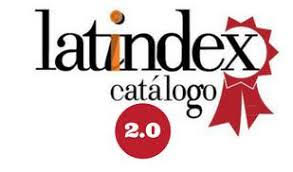Reduction of the thermal demand of production in wineries located in an arid climate using semi-empirical thermal modeling
Keywords:
Efficiency, climate, winemaking, thermal modeling, receptacleAbstract
The study of a sample of three wineries in San Juan, Argentina reveals that energy demand (DE) in winemaking is related to the thermal processes that occur inside winemaking receptacles (EV). These processes determine the quality of the wine, range from fermentation to storage, and require a certain thermal stringency, which is likewise referred to in this article as wine comfort. To determine the influence of an arid climate on wine comfort conditions and the resulting DE for thermal conditioning, a semi-empirical modeling tool was designed. With this instrument it is possible to test the thermal processes of wine fermentation and storage during warm (fermentation and storage) and cold seasons (storage). The modeling results confirm that an increase in the thermal inertia of the EVs promotes heat load reduction (QT), which affects the winery´s DE.
Downloads
References
AMERICAN SOCIETY OF HEATING, REFRIGERATIG AND
AIR CONDITIONING ENGINEERS. ASHRAE Handbook
Fundamentals. Nueva York, Estados Unidos, 2007.
INSTITUTO ARGENTINO DE NORMALIZACIÓN. IRAM 11601:
Aislamiento Térmico de edificios, métodos de cálculo. Buenos
Aires, 2002.
INSTITUTO ARGENTINO DE NORMALIZACIÓN. IRAM 11603:
Clasificación bioambiental de la República Argentina. Buenos
Aires, 1996.
OREGLIA, Francisco. Cualidades de las levaduras e inuencia del
medio. En: Enología Teórico-práctica. Buenos Aires: Ediciones
Instituto Seliciano de Artes Gráficas de Buenos Aires, 1978,
pp.185-204.
PAPPARELLI, Alberto y DE ROSA, Carlos. Arquitectura y Clima
en Zonas Áridas. San Juan, Argentina: Editorial Fundación
Universidad Nacional de San Juan, 1998.
RAMOS SANZ, Alba y BLASCO LUCAS, Irene. Condiciones
Higrotérmicas de Fermentación de Vinos comunes y finos de
variedades blancas y tintas. Revista AVERMA, 2011, vol. 15, pp.
-26.
Downloads
Published
How to Cite
Issue
Section
License
The content of articles which are published in each edition of Habitat Sustentable, is the exclusive responsibility of the author(s) and does not necessarily represent the thinking or compromise the opinion of University of the Bio-Bio.
The author(s) conserve their copyright and guarantee to the journal, the right of first publication of their work. This will simultaneously be subject to the Creative Commons Recognition License CC BY-SA, which allows others to share-copy, transform or create new materials from this work for non-commercial purposes, as long as they recognize authorship and the first publication in this journal, and its new creations are under a license with the same terms.

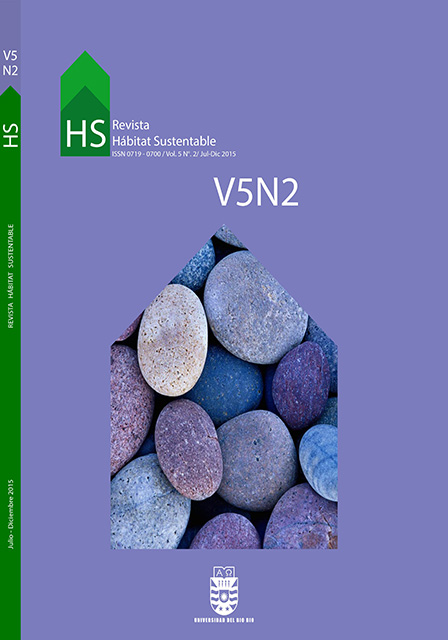
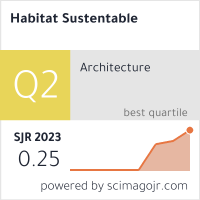






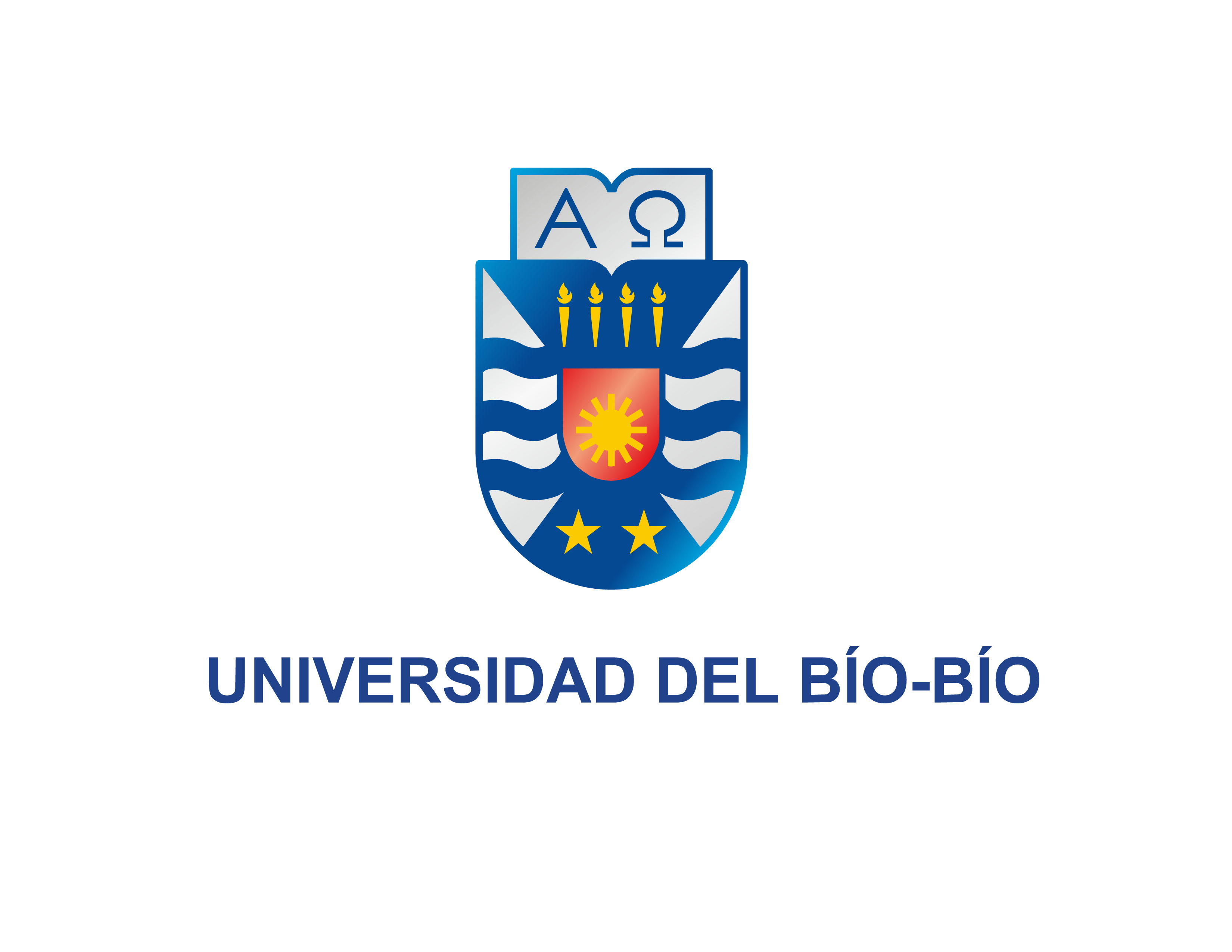

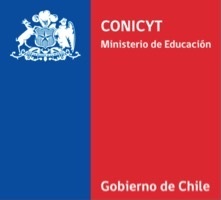 Scientific Information Program/Concurso Fondos de Publicación de Revistas Científicas 2018/ Proyecto Mejoramiento de Visibilidad de Revistas UBB (Código:FP180007).
Scientific Information Program/Concurso Fondos de Publicación de Revistas Científicas 2018/ Proyecto Mejoramiento de Visibilidad de Revistas UBB (Código:FP180007).
